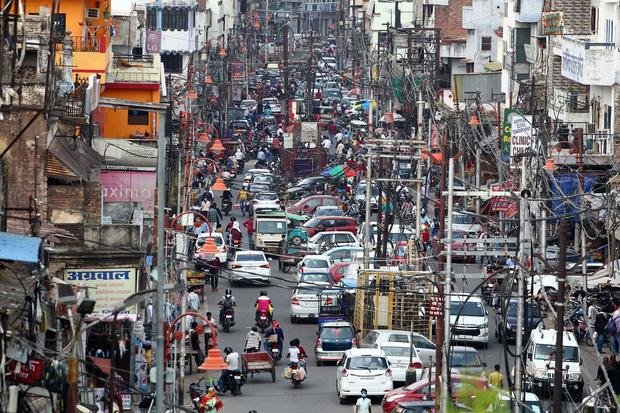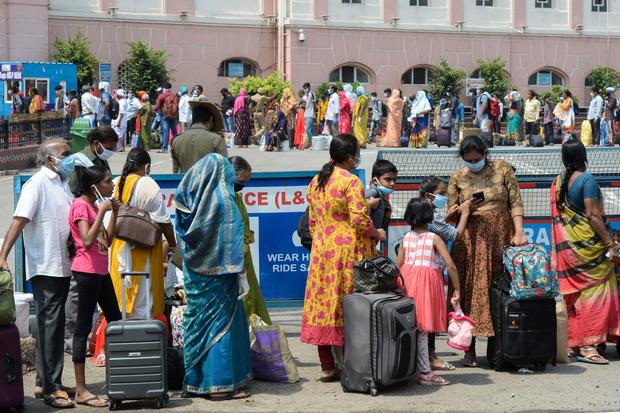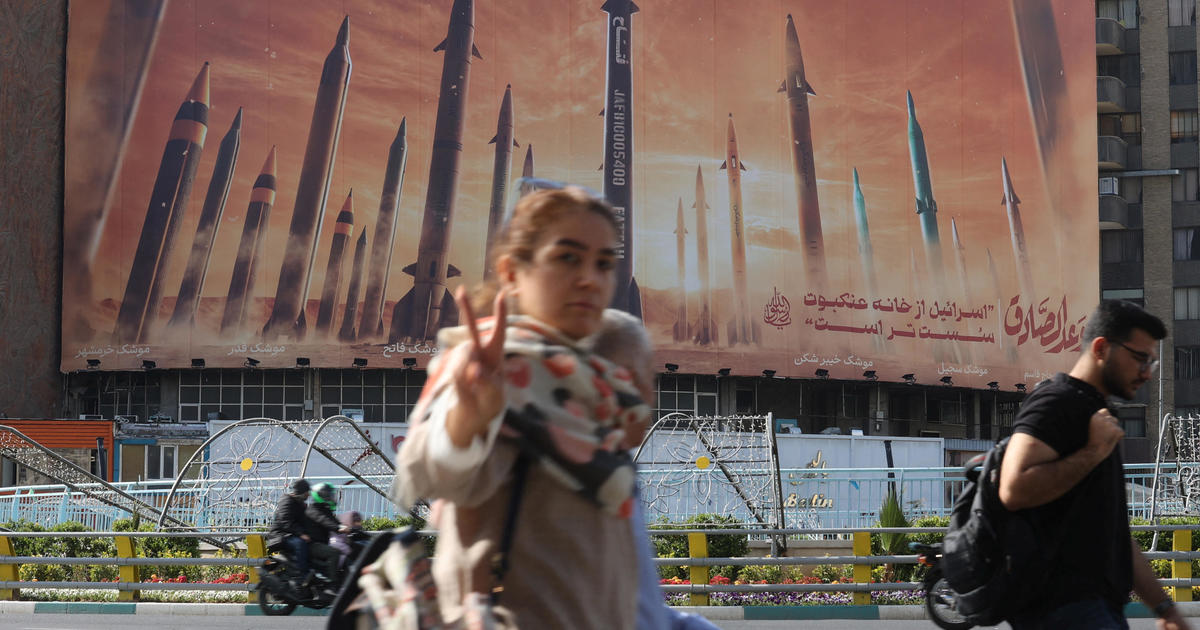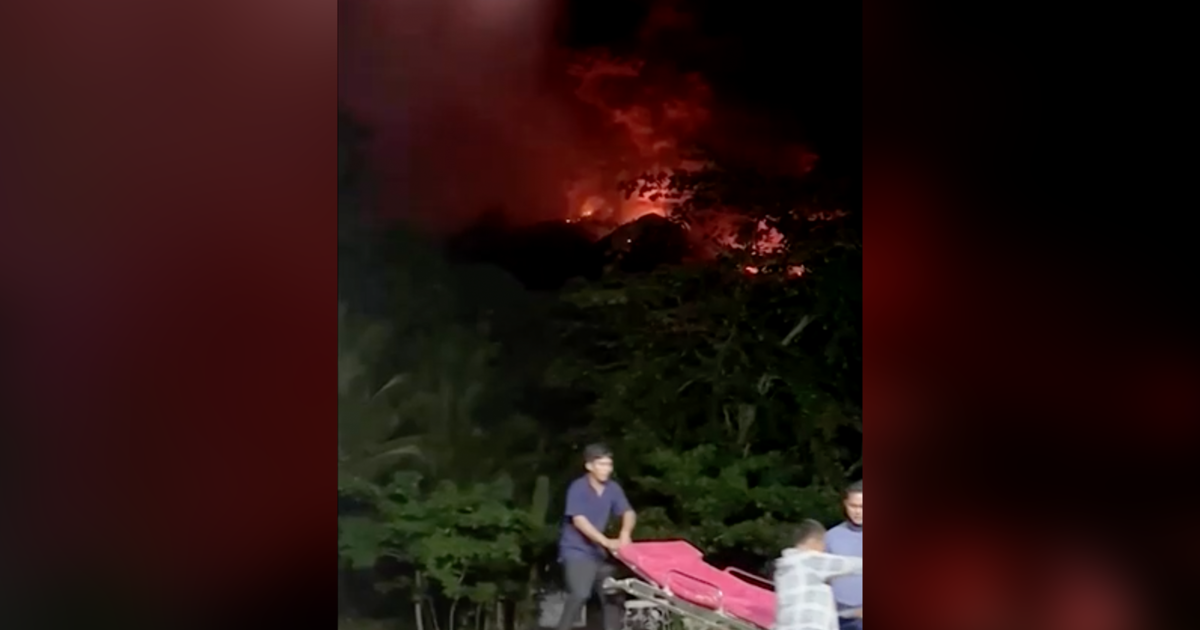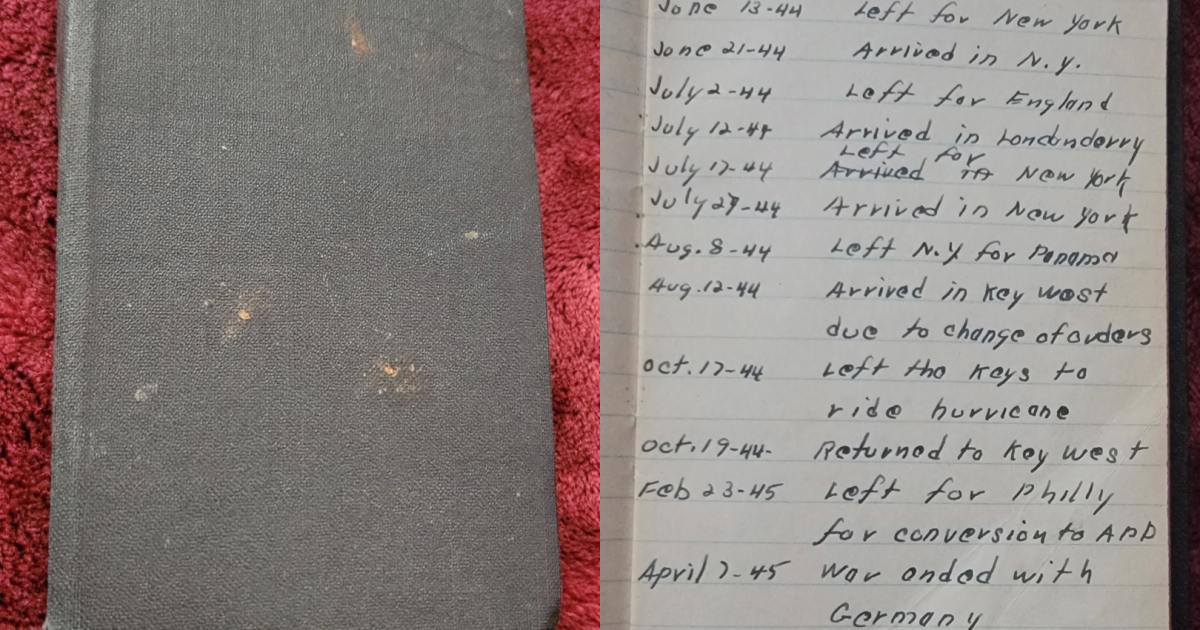World's biggest coronavirus lockdown ends in India despite soaring infections
New Delhi — More than two months after India enforced a strict nationwide lockdown to control the spread of coronavirus, the country is allowing most businesses and services to resume and lifted most restrictions on the movement of people and goods. It's the biggest change in the rules since March 25, when the world's biggest national lockdown began.
Crowds filled the streets and markets in several cities and towns Monday as most businesses and other workplaces reopened under the first "unlock" phase, which is set to run from June 1 to 30.
Hundreds of thousands of people crowded into railway stations as 200 more trains were put into operation Monday, resuming the long-awaited inter-state travel that had been largely impossible for months. For the past few weeks India was running only 35 special train services to help migrant workers stranded in big cities get home.
Other public transport, including buses and subway services, were to remain largely suspended for this first "unlocking" phase.
India also plans to allow hotels, restaurants, shopping malls and places of worship to reopen from June 8 everywhere but designated "containment zones" — localities with a high number of COVID-19 cases where the movement of people and services will continue to be severely restricted.
Domestic flights resumed last week, and the government is aiming to resume international flights later this month after another review of the pandemic situation.
The lockdown was becoming unaffordable to sustain. With businesses shuttered and hundreds of millions of casual laborers — many of whom were already living hand-to-mouth — out of work, the government said it was unlocking the country with an "economic focus."
But with the coronavirus still spreading fast in the country, the government's decision to lift the lockdown for the sake of the economy comes with inherent risks.
Sunday brought a record single-day jump of more than 8,300 new COVID-19 cases confirmed. The total number of people who have tested positive for the disease in India is now over 190,000, including almost 5,500 deaths, according to India's Health Ministry.
Some states with a particularly high number of cases, including Maharashtra, Tamil Nadu and Telangana, have decided not to ease restrictions as much as the federal government is allowing at this stage.
Maharashtra is India's worst-affected state, with 35% of the total cases and 42% of the deaths. The majority of these cases are in Maharashtra's capital, Mumbai, India's richest city and its business capital.
Last week, CBS News partner network BBC News reported that Mumbai's hospitals were on the brink of collapse, with people being treated next to dead bodies and wards overflowing with patients.
Concerns have also mounted for India's other megalopolis, the capital city of Delhi, which has the third-highest number of COVID-19 cases in the country. The city has confirmed more than 1,000 new cases of coronavirus every day for the past four days, bringing the total number of infections there close to 20,000 as of Monday.
India has tested over 3.8 million people out of its population of 1.32 billion so far. Experts believe the country won't likely see the rate of new daily infections peak until late July.
